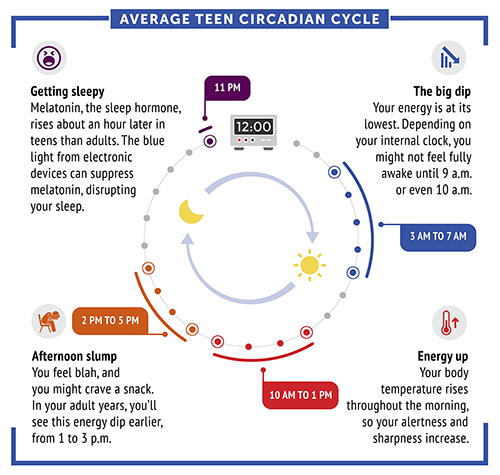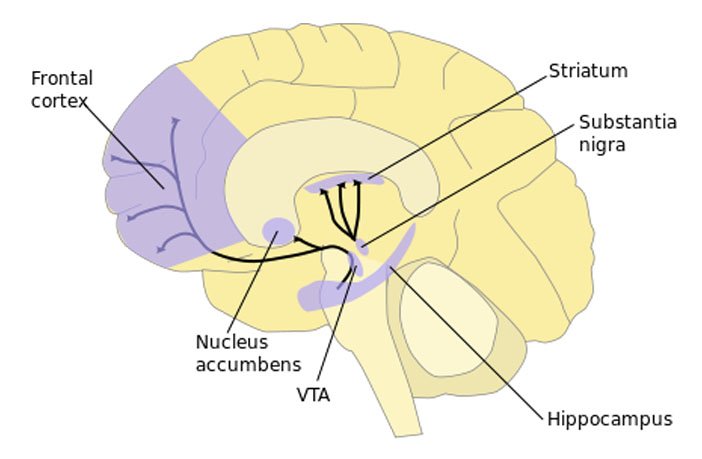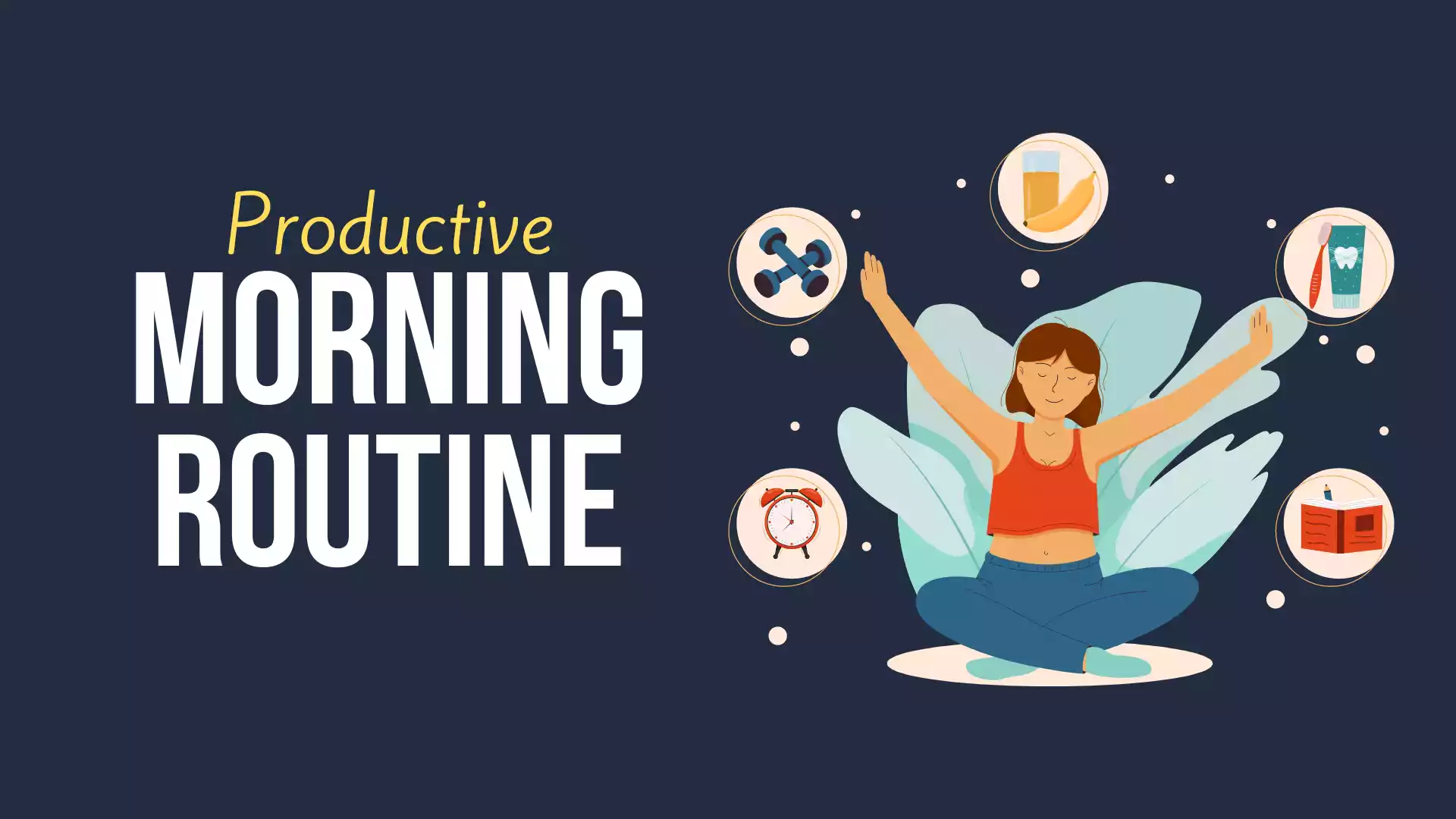Imagine starting your day feeling energized, focused, and accomplished. This is the power of a morning routine. A morning routine is a set of habits or activities that you do every morning to set the tone for the rest of your day.
It’s a simple yet powerful tool that can help increase productivity, improve mental and physical well-being, and even boost your mood. In this article, we will explore the science behind morning routines, provide tips on how to create an effective routine, and give examples of routines that can work for different lifestyles.
So whether you’re a busy professional, a student, or a stay-at-home parent, read on to learn how a morning routine can benefit you and help you make the most of your day.
The Science behind morning routines
The Science behind morning routines is rooted in our body’s natural circadian rhythm, which is the 24-hour internal clock that regulates our sleep-wake cycle. This rhythm is influenced by the levels of light and darkness we are exposed to and plays a crucial role in determining our energy levels and productivity throughout the day.

Research has shown that people who have a consistent morning routine have a better-synchronized circadian rhythm, which leads to improved sleep quality and increased energy levels in the morning. This, in turn, helps them to be more productive and focused during the day.
For example, a study published in the Journal of Sleep Research found that individuals who had a consistent morning routine, including exposure to natural light in the morning, had a stronger and more stable circadian rhythm compared to those who did not have a routine. This resulted in improved sleep quality and daytime functioning.

Another study published in the journal Frontiers in Human Neuroscience found that people who practiced mindfulness meditation as part of their morning routine had better brain function and cognitive flexibility, which is the ability to adapt to new information and change one’s perspective. This suggests that incorporating mindfulness practices into a morning routine can help improve focus, creativity, and decision-making skills.
Additionally, research has shown that the habit-forming nature of morning routines can also play a significant role in their effectiveness. Habits are behaviors that we repeat regularly and eventually become automatic, requiring minimal conscious effort. By creating a morning routine and consistently repeating it, we can establish these habits, which can lead to increased productivity and a sense of accomplishment.

For example, a study published in the journal Social Cognitive and Affective Neuroscience found that people who had a consistent morning routine had increased activity in the striatum, a brain region associated with habit formation. This suggests that regularly repeating a morning routine can lead to the formation of habits that can make it easier to start the day productively and positively.
In conclusion, the science behind morning routines highlights the importance of aligning our daily activities with our body’s natural circadian rhythm, incorporating habits-forming activities, and being consistent in maintaining a morning routine. These practices can lead to improved sleep, energy levels, cognitive function, and overall productivity, making the morning routine a powerful tool for setting the tone of the entire day.
How to Create an Effective Morning Routine
Creating an effective morning routine can be a bit overwhelming, but by breaking it down into manageable steps, it can be done. Here are some key elements to consider when creating a morning routine:
- Setting a consistent wake-up time: The first step in creating a morning routine is to establish a consistent wake-up time. This will help regulate your body’s circadian rhythm and make it easier to stick to a routine. It’s important to find a wake-up time that works best for you, taking into consideration your lifestyle and responsibilities.
- Prioritizing tasks and goals for the day: Once you’ve established a wake-up time, the next step is to prioritize the tasks and goals that you want to accomplish for the day. Write them down and assign them a level of importance. This will help you stay focused and motivated throughout the day.
- Incorporating physical activity and mindfulness practices: Incorporating physical activity and mindfulness practices into your morning routine can help boost your energy levels and improve your focus. This can be as simple as a quick yoga session, a short run, or even a few minutes of meditation.
- Planning a nutritious breakfast: Starting the day with a nutritious breakfast is key to maintaining energy levels throughout the day. Plan and make sure you have healthy breakfast options available that you enjoy eating.
- Be flexible: Remember that a morning routine is not set in stone and it’s okay to adjust and adapt it as needed. The key is to find what works best for you and your lifestyle.
By following these guidelines, you’ll be on your way to creating an effective morning routine that will help increase productivity and set the tone for the rest of your day.
Examples of Morning Routines
Examples of morning routines can vary greatly depending on a person’s lifestyle and responsibilities. Here are a few examples of routines that may work well for different lifestyles:
A routine for a busy professional:
A routine for a student or academic:
A routine for a stay-at-home parent:
It’s important to note that these are just examples, and every individual is unique. It’s important to find a morning routine that works best for you and your lifestyle. You can take inspiration from these examples, but remember to make adjustments as needed.
Tips for Maintaining a Morning Routine
Maintaining a morning routine can be challenging, especially when faced with unexpected events or a change in schedule. Here are a few tips to help you stay motivated and on track:
- Stay motivated: It can be easy to lose motivation when following a morning routine, but it’s important to remind yourself of the benefits it brings. Keep a journal of your progress, and track the positive changes that you have seen in your life since you started your routine.
- Be flexible: Life happens, and it’s important to be flexible and make adjustments to your routine as needed. Remember that the goal is to establish a routine, not to be rigid.
- Make it enjoyable: Incorporate activities that you enjoy into your routine. This can make it more enjoyable and increase your chances of sticking to it.
- Get an accountability partner: Share your morning routine with a friend or family member, and ask them to hold you accountable. This can help you stay motivated and on track.
- Reward yourself: Reward yourself for sticking to your routine. It can be something simple like a cup of coffee or a piece of chocolate, but it will help you to stay motivated.
- Get a planner: Having a planner can be very helpful in setting and tracking your goals and keeping track of your morning routine. You can plan your tasks and activities for the day and week and set reminders to help you stay on track.
- Keep it simple: It’s important to start with small and manageable tasks and gradually build on them. Trying to do too much at once can be overwhelming and make it difficult to stick to the routine.
- Gradually increase the difficulty level: As you get comfortable with your morning routine, you can gradually increase the difficulty level of the activities you include. For example, if you start with a 10-minute yoga session, you can gradually increase it to 20 or 30 minutes over time.
- Make it a habit: Habits are formed over time, and it can take several weeks or even months to fully establish a morning routine. Be patient, and don’t give up if you miss a day or two. Just get back on track and keep going.
- Experiment: Don’t be afraid to experiment with different activities and routines to find what works best for you. Everyone is different and what works for one person may not work for another. Keep trying different things until you find the perfect routine that works for you.
By following these tips, you can establish a morning routine that works for you, increase your productivity and improve your overall well-being.
Remember, the key is consistency and patience, and it may take time to fully establish the routine. But the benefits are worth it, and you’ll see the improvements in your daily life.
Conclusion
In conclusion, a morning routine is a powerful tool that can help increase productivity, improve mental and physical well-being, and boost your mood. The science behind morning routines highlights the importance of consistency and incorporating activities that align with our body’s natural circadian rhythm, as well as habits-forming activities.
Creating an effective morning routine can be done by setting a consistent wake-up time, prioritizing tasks and goals for the day, incorporating physical activity and mindfulness practices, planning a nutritious breakfast, and being flexible.
It’s important to remember that every individual is unique and what works for one person may not work for another. Finding a morning routine that works best for you and your lifestyle takes time and experimentation. But with patience and consistency, you can establish a routine that helps you make the most of your day.
